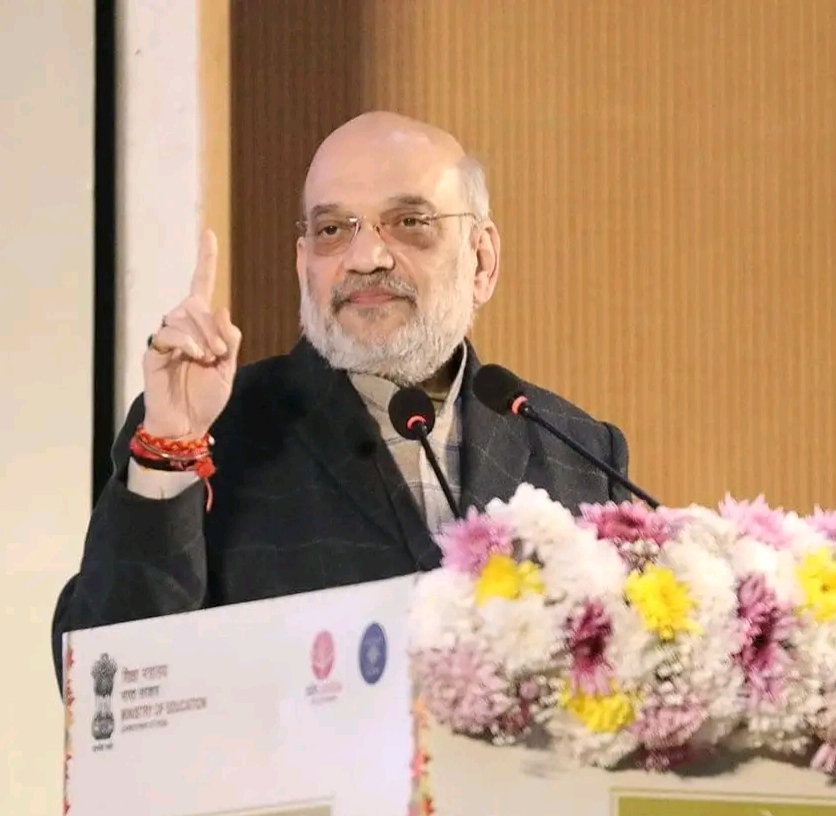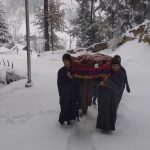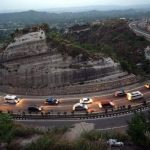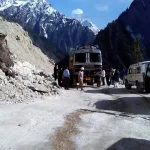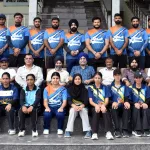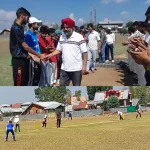Union Home Minister and Minister of Cooperation, Amit Shah, released the book ‘Jammu Kashmir & Ladakh Through the Ages: A Visual Narrative of Continuities and Linkages’ in New Delhi today.
Many dignitaries including Union Minister of Education Dharmendra Pradhan and Chairman of the Indian Council of Historical Research (ICHR) and Editor of the book Prof. Raghuvendra Tanwar were present on the occasion.
In his address, the Union Home Minister and Minister of Cooperation emphasized that the National Book Trust (NBT), through its latest publication, has effectively dismantled a long-standing myth about India by presenting facts and evidence, thereby establishing historical truths.
He said that there was a myth that India was never united and the idea of independence for this country was meaningless — a misconception that many had come to accept as truth. The Union Home Minister highlighted that while for most of the countries geo-politics have defined their boundaries, India’s case is unique where this nation has been defined by its geo-cultural expanse, and whose borders are made up of from cultural unity.
He elaborated that India’s essence lies in its geo-cultural identity, with its cultural fabric binding the nation from Kashmir to Kanyakumari and from Bengal to Gujarat. He argued that interpreting India solely as a geo-political entity overlooks its true nature. Instead, a deep understanding of India requires viewing it through the lens of its geo-cultural identity. He stressed the importance of historical research and academic institutions in promoting this perspective to the world, as it is crucial to understanding the elements that culturally unify the country.
Amit Shah highlighted the similar distortions that have affected the history of Jammu, Kashmir, and Ladakh. He asserted that interpreting the history of these regions by manipulating facts is both futile and misleading. Such distortions, he remarked, could only stem from the works of historians with a myopic vision. Those who know about India’s illustrious past will never commit such mistakes.
Shah pointed out that the book demonstrates, with evidence, that the culture, languages, scripts, spiritual philosophies, art forms, pilgrimage traditions, and trade practices found throughout India have been present in Kashmir for at least thousand years. He emphasized that once this historical truth is established, questioning Kashmir’s union with India becomes irrelevant.
Shah added that this book proves that our rich heritage, scattered across every corner of the country, has been present in Kashmir for thousands of years. The book draws upon references to Kashmir from texts as old as 8,000 years, reaffirming its integral role in the nation’s history. The Home Minister firmly stated that Kashmir always has been and will continue to remain an inseparable part of India.
He stressed that no legal provision could ever sever this bond, and while there were attempts to separate Kashmir from India in the past, time itself has nullified those efforts. He said that Modi government is committed to revive the historic and cultural heritage of Kashmir, and we will soon reclaim what has been lost.
Union Home Minister remarked that the relationship between Kashmir, Ladakh, Shaivism, and Buddhism has been eloquently captured in this book and exhibition. He commended the documentation of scripts, knowledge systems, spirituality, culture, and languages, emphasizing the meticulous effort that went into presenting this rich heritage.
The book vividly chronicles the journey of Buddhism—from Nepal to Bihar via Kashi, and onward to Afghanistan through Kashmir. He highlighted that Kashmir was the birthplace of the refined principles of Buddhism that emerged after Lord Buddha, as well as the foundation for many of the teachings that shape modern Buddhism. The book also features sculptures from Drass and Ladakh, discussions and images of stupas, depictions of temple ruins destroyed by invaders, and references to the use of Sanskrit in Jammu and Kashmir, as described in Rajatarangini.
Covering Kashmir’s 8,000-year history, he likened this comprehensive effort to encapsulating the sacred Ganga within a vessel. The Home Minister reflected on the vast and, at times, challenging nature of history. He noted that for 150 years, some people’s understanding of history was confined to narrow geographies—from Dariba to Ballimaran or Lutyens to Gymkhana. He stressed that history cannot be written from a distance but requires engaging directly with the people and understanding their lived experiences.
Amit Shah emphasized that the time has come to move beyond history written to appease past rulers. He urged historians to confidently document India’s history using evidence, facts, and the perspective of its rich, millennia-old culture, and to present it to the world with pride. He remarked that today, India stands as an independent nation with a government committed to upholding the values and ideas rooted in its heritage. Shri Shah highlighted that Kashmir and Ladakh have historically served as centres of civilization, fostering creation, preservation, and cultural promotion.
Numerous examples of this rich legacy are detailed in the book. He noted that Kashmir has always been a land of inclusivity, embracing and nurturing diverse faiths. Whether it is Buddhism, Sufism, or Shaivism, each tradition has found the freedom to thrive on Kashmiri soil. Shri Shah also pointed out that Kashmir is often referred to as the land of Kashyap, underscoring its historical and spiritual significance.
Union Home Minister and Minister of Cooperation highlighted the linguistic diversity of India as one of its greatest strengths, which is particularly evident in Kashmir. He noted that Prime Minister Shri Narendra Modi has revitalized regional languages by forming two Union Territories and recognizing their official languages. While Hindi, English, and Sanskrit have retained their importance, Prime Minister Modi has ensured the survival and growth of languages like Kashmiri, Balti, Dogri, Ladakhi, and Zanskari by incorporating them into governance.
Shah emphasized that this effort reflects Prime Minister Modi’s sensitivity and commitment to preserving the cultural and linguistic heritage of the nation, especially for languages spoken by small number of populations. Shri Shah remarked that Kashmir has long suffered under the onslaught of fundamentalists, invaders, and plunderers with expansionist ambitions.
Amit Shah said that Articles 370 and 35A were obstacles, preventing Kashmir from being fully integrated with our country. Shri Shah noted that Prime Minister Modi’s resolute determination led to the abrogation of Article 370 on August 5, 2019. He further said that by abolishing Article 370, Modi ji ended a tainted chapter of post-independence history and initiated a new chapter of Kashmir’s development in tandem with the rest of India.
Union Home Minister and Minister of Cooperation said that Article 370 had sowed the seeds of separatism in the minds of the youth of the Kashmir Valley. He questioned why terrorism has not arisen in many parts of the country that have significant Muslim populations. He pointed out that states like Gujarat and Rajasthan also share borders with Pakistan, yet terrorism did not emerge there. He said that Article 370 created the misconception that the connection between India and Kashmir was temporary, which sowed the seeds of separatism that eventually turned into terrorism.
He expressed regret over the unfortunate fact that more than 40,000 people fell victim to terrorism and that Kashmir’s development was set back by decades. He further remarked that for years, terrorism wreaked havoc in the region, while the nation stood by as a silent spectator.
Amit Shah highlighted that after the abrogation of Article 370, there has been a reduction of over 70 per cent in terrorist incidents in Kashmir, which proves that Article 370 was a facilitator of terrorism. He mentioned that in 2018, there were 2,100 incidents of stone-pelting in Kashmir, whereas in 2023, not a single such incident occurred. He highlighted that over 25,000 panchayat members, including sarpanches, block panchayat members, and district panchayat members, were elected and are actively working for the development of their areas, thereby strengthening the roots of democracy in Kashmir. Shri Shah pointed out that there was a record turnout in the Lok Sabha and Assembly elections in 33 years.
He further added that industries are now setting up in the region, and last year 2 crore 11 lakh tourists visited Kashmir. In 2023 alone, 324 serials or films were shot in the region. For the first time in 33 years, theaters in the Kashmir Valley held night shows, processions for Tazia were organized, and a Krishna Janmashtami tableau was seen at Lal Chowk in Srinagar. He emphasized that all these developments have taken place in the five years since the abrogation of Article 370.
Union Home Minister said that today, Kashmir is home to the world’s largest railway arch bridge, Asia’s largest tunnel, and a cable-stayed rail bridge. He highlighted that Kashmir now has an IIT, an IIM, two AIIMS, nine government medical colleges, two nursing institutes, two state cancer institutes’, eight colleges that are already operational, while 24 more are under construction.
He added that 59 colleges have been accredited, and highway tunnels are being built—all of this achieved during the tenure of the Modi government. Shri Amit Shah questioned previous governments, asking why even 10 per cent of these developments did not occur during their 70 years of governance, and said they owe an explanation to both the nation and the people of Kashmir. He also mentioned that Prime Minister Modi implemented ₹80,000 crore development package for Jammu, Kashmir, and Ladakh. Furthermore, 4G and 5G networks have now been extended to approximately 87 per cent of the villages in the region.
Amit Shah stated that the Modi government has not only brought terrorism under control but has also completely dismantled its ecosystem in the Kashmir Valley. He emphasized that the government has done everything for this land, which has made a significant contribution to the civilizations of the country and the world.
Shah said that due to the efforts of the Modi government, Kashmir has once again become an integral part of India’s geo-cultural nation and is moving forward on the path of development along with the rest of the country, with democracy firmly established there. He expressed confidence that whatever has been lost will soon be regained, including not only development but also the cultural heights and ancient glory of Kashmir.
He remarked that the people of Kashmir will create and realize those immortal chapters of history on the ground. Home Minister further quoted Dr. Syama Prasad Mookerjee, who had said that Jammu and Kashmir is not just a part of India but an inseparable part of India’s soul. Shri Shah asserted that this has now been firmly established, and no one can deny it anymore.


